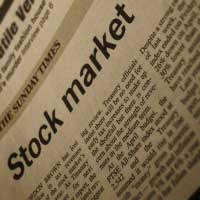Posted On: 12/02/2012 8:09:35 AM
Post# of 403

Morningstar's Trifecta: An Easy Way To Select Mutual Funds When it comes to investing for retirement, many 401(k) plan-participants and other do-it-yourself investors are challenged by a lack of experience, expertise and available time. For the great majority of these investors, meaningful advisory assistance is often limited. Thus, investing for millions of individual investors is self-directed. (Looking for current mutual fund information ? We'll look at one of the places to start your search. Since the investment vehicle of choice for most individuals is the mutual fund, Morningstar comes to the rescue with its widely-used fund reports. There is a ton of valuable evaluative data in these reports, but less-experienced fund investors should focus their attention on just three fund report components – the "analyst pick", "stewardship grade" and "analyst opinion." This Morningstar "trifecta" is easy to access and understand. It would not be an exaggeration to suggest that a fund investor could rely on just this evaluative trio to make suitable fund selections. What follows is a point-by-point explanation of three key insights into a mutual fund's investment quality, as revealed in a Morningstar fund report. (Morningstar's service gives investors an idea how well fund companies are safeguarding their interests. Analyst Pick This moniker may be an unfortunate choice of phraseology because it belies the underlying importance of Morningstar's rigorous due diligence and expertise in arriving at this designation for a mutual fund. A Morningstar analyst pick represents a top-quality mutual fund. After analyzing over 2,000 mutual funds , analysts choose their favorite ones based on selected criteria. Because the list is constantly being updated, mutual fund investors can have constant access to the opinions of professionals regarding a wide variety of mutual funds. When determining fund recommendations, qualitative and quantitative factors are carefully considered. These indicators include: • Successful funds tend to be driven by consistent, thoughtful and repeatable strategies. • Experienced, successful fund managers are less prone to get caught up in fads or short-term trends. The quality of the organization supporting a manager is also important. • Low expenses. Morningstar feels very strongly that expenses have a greater predictive value than any other data-point in the fund universe. • Stewardship. Investment managers acting in the interests of shareholders. • Fund Selection – each fund category is assigned an analyst who is thoroughly familiar with the funds included therein. Morningstar conducts regular reviews in which the analysts defend their recommendations to a senior analyst committee. When it comes to prospecting funds for your portfolio, or monitoring the ones you already have, the need to go outside the circle of Morningstar's analyst picks is questionable. Stewardship Grade Morningstar's stewardship grade is another essential trait to notice when selecting the right fund. In brief, Morningstar assigns quality grades – A, B, C, D and F – to funds to help investors "… research, identify and compare fund managers and companies that do a good job – or a poor job – of aligning their interests with those of fund shareholders." Most likely, back in your school days, you wanted to see an A or a B grade on your report card, so it should be with the funds where you put your hard-earned money. It's recommended that investors limit their fund choices to those with the high quality A and B stewardship grades. While using some quantitative measures, its research is, states Morningstar, "… primarily based on qualitative information gathered by [their] fund analysts." These analysts dig into a fund's corporate culture, board quality, managerial fund ownership and form of compensation, costs and expenses, managerial tenure and personal investment and regulatory issues. This extensive "human" due diligence, which is provided to fund investors in a simple letter grade, is far beyond the reach and ability of non-professional individual investors. Each category is given a score; once the scores of all factors are determined, the final sum corresponds with a particular letter grade. Morningstar's Analyst Opinion A Morningstar fund analyst regularly gives his or her opinion in a commentary that gives a general brief overview to give a qualitative assessment of the current overall strengths and weaknesses of a fund. Interim opinions will also appear when warranted. It should be obvious that what investors are looking for from a Morningstar analyst opinion is a positive perspective on the fund being reviewed. One doesn't need any financial expertise or experience to discern a favorable analysis from an unfavorable one. Also, a favorable Morningstar analyst opinion on a fund experiencing hard times, but with a bright future, can build investor confidence to overcome the understandable urge to exit and persuade the investor to stick with a fund that is fundamentally sound for the long-term. Conclusion If you think of the process of mutual fund selection as a puzzle, you only need the three pieces of the Morningstar trifecta to put a fund's investment qualities into a coherent whole. This is doable for any fund investor, whatever their level of financial experience and expertise. (Do you understand how the various types of shares differ? We give you the pros and cons of each.
